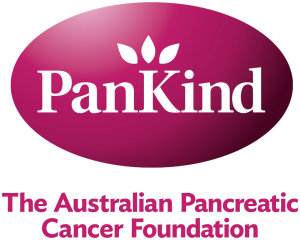2023 Impact in Research

As 2023 comes to a close, we would like to share an overview of some key areas of focus for our research program, and exciting developments from our Early Detection Initiative over the last 12 months. These projects align with our strategic focus on the early diagnosis of pancreatic cancer, to ultimately triple survival rates by 2030:
- Professor Anubhav Mittal's work has identified novel urine and blood tests for the early diagnosis of pancreatic cancer, showing promising results in patients diagnosed at an early stage.
- Professor Claudine Bonder's team has discovered a highly expressed protein on pancreatic cancer cells, with a soluble form detectable in blood samples. This innovative project aims to develop a simple blood test for early-stage disease, particularly beneficial in remote areas.
- Professor John Rasko's investigation into exosomes, small vesicles facilitating cancer cell communication, revealed unique molecular signatures in pancreatic cancer. These findings hold significant potential for early diagnosis and improved clinical outcomes.
- Chamini Perera's study focuses on identifying RNA markers for early pancreatic cancer detection. The comprehensive analysis of exosomal RNA cargo from pancreatic cancer cells and supporting cells aims to unveil novel biomarkers for early diagnosis.
- Professor Rachel Neale’s Panlink Study aims to identify a high-risk subgroup, focusing on new-onset diabetes, for potential routine surveillance by linking national healthcare datasets, with collaboration from AIHW.
- Professor Neale has interviewed 132 patients as part of the Pathways study to understand and improve the diagnostic journey for patients in the future.
On World Pancreatic Cancer Day in November, we announced the successful grant recipients in the 2023 grant round, committing a further $1.87 million in research funding into pancreatic cancer, a disease with the lowest survival rate of all major cancers. The investment will be shared between seven promising research projects involving scientists from leading institutions around Australia and will fund important projects in the areas of early detection and new treatments.
PanKind also participated in 8 national clinical projects to improve access and outcomes for patients.
Next year, groundbreaking clinical trials for a previously untreatable mutation will be available— these are just trials at this stage but if successful will provide a promising treatment option. Genomic medicine is proving hopeful for 25% of pancreatic cancer patients and the next phase is to ensure that this approach is accessible to all.
2023 PanKind Scientific Meeting
Over 100 researchers from across Australia attended the 2023 PanKind Scientific Meeting in Sydney this October, with the aim of discussing and evaluating the future of pancreatic cancer research in Australia.
PanKind was proud to host this important event to unite the research community to understand each other’s expertise and explore opportunities to ultimately improve patient survival. Please enjoy an overview of the Meeting on the video below.



